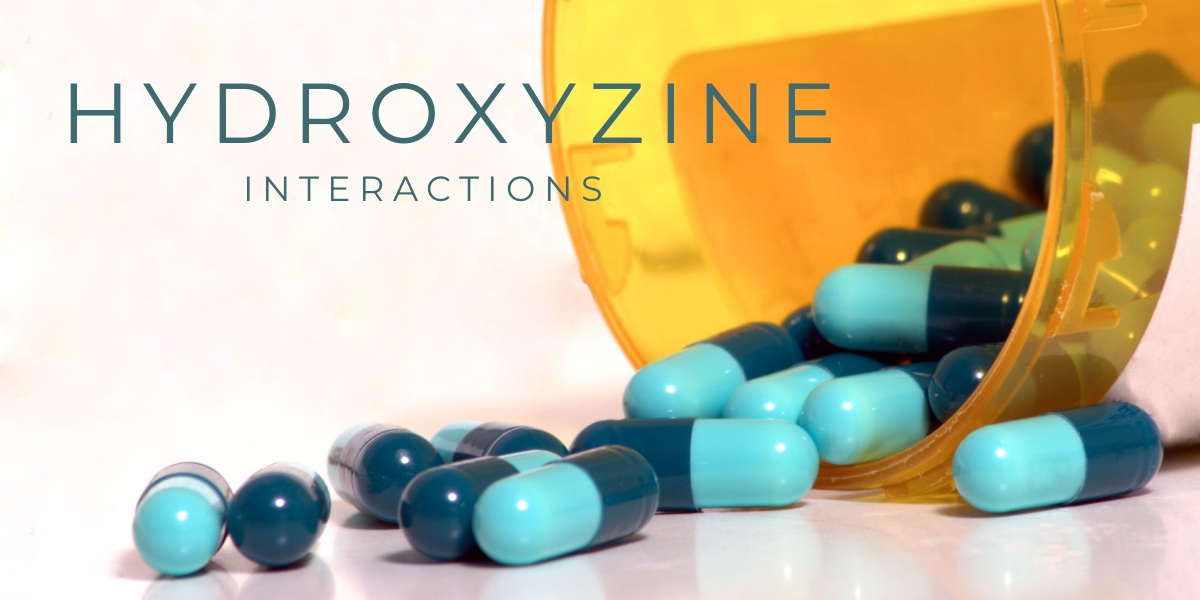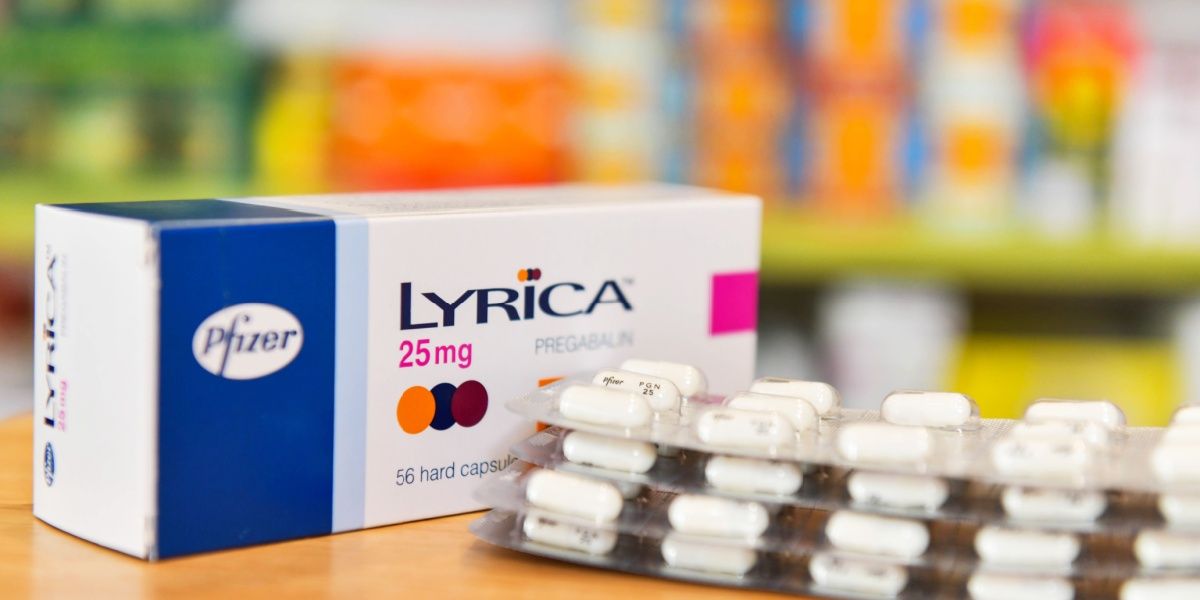Hydroxyzine is an antihistamine medication that can be used for various purposes, including to treat allergic reactions and anxiety, and as a sedative before and after surgery. Hydroxyzine can interact with other drugs and substances, causing potentially dangerous effects. This article will detail the types of medications and substances that can interact with hydroxyzine and their potential effects.
- Hydroxyzine is prescribed to treat anxiety and allergic reactions and is used as a sedative before and after surgery.
- Hydroxyzine can interact with CNS depressant substances, such as opioids and benzodiazepines, causing dangerous CNS depressant effects. It can also cause issues with heart functioning if taken with certain medications.
- When taking hydroxyzine with other medications, reduced doses may be necessary, which can be managed by the prescribing physician.

How hydroxyzine works and why interactions occur
Hydroxyzine is an antihistamine medication used to treat anxiety symptoms and itchiness related to allergic reactions, and as a sedative before and after surgery. Hydroxyzine causes a range of effects, allowing it to be used for numerous medicinal purposes. [1]
Hydroxyzine causes antihistamine effects by blocking histamine action at the H1 receptor. This action causes some inhibiting effects on the central nervous system (CNS), which contributes to some of its side effects, such as drowsiness. [1][2] Hydroxyzine also causes some pain-relieving, muscle-relaxing, and anti-nausea effects. [1]
Because of its many actions in the body, various medications and substances can interact with hydroxyzine, causing changes in the effectiveness of the medications or an increased risk of side effects. [3]
Major drug interactions
Because of its effects, combining hydroxyzine with CNS depressant drugs can cause an increase in CNS depression. This can lead to dangerous effects such as oversedation, loss of consciousness, and impaired heart functioning. Medications that can interact with hydroxyzine to create these effects include: [1][3]
- Opioids, such as hydrocodone, morphine, fentanyl, and buprenorphine
- Benzodiazepines, such as clonazepam, lorazepam, and diazepam
- Sleeping pills, such as zolpidem and eszopiclone
- Barbiturates, such as phenobarbital and butobarbital
Hydroxyzine can cause a prolonged QT interval, which can lead to dangerous heart rhythms and cardiac arrest. Because of this, it is not recommended to combine hydroxyzine with other medications that can also prolong the QT interval, such as: [3][4][5]
- Some antidepressants, such as escitalopram, and citalopram
- Some antipsychotics, such as haloperidol, amisulpride, and ziprasidone
- Some antibiotics, such as erythromycin, azithromycin, and moxifloxacin
- Some antivirals, such as efavirenz and saquinavir
- Medications to treat abnormal heart rhythms, such as disopyramide, dofetilide, and ibutilide
- Methadone
Hydroxyzine causes anticholinergic effects, caused by inhibited activity of the neurotransmitter acetylcholine. As such, it should not be combined with other anticholinergic medications, such as: [2][3]
- Other antihistamines, including diphenhydramine and phenyltoloxamine
- Parkinson’s medications, such as benztropine and trihexyphenidyl
- Medications for asthma and COPD, such as ipratropium and tiotropium
- Antinausea medications, such as scopolamine
Interactions with alcohol, cannabis, and illicit drugs
Hydroxyzine can interact with alcohol, cannabis, and illicit drugs. It is recommended not to consume alcohol while taking hydroxyzine, as this can lead to increased CNS depressant effects and cause oversedation. [1] Similarly, illicit substances that have a CNS depressant effect can interact with hydroxyzine, causing dangerous effects. This can include: [2]
- Opioids such as heroin and illicitly made fentanyl
- Dimethyltryptamine (DMT)
- Gamma-hydroxybutyrate (GHB)
- Lysergic acid diethylamide (LSD)
Cardiac function may also be impaired, and the risk of QT prolongation might be increased when hydroxyzine is combined with cocaine. [2] Combining hydroxyzine with cannabis can cause increased CNS depressant effects and may also reduce the effectiveness of hydroxyzine. [2]
Supplements and herbal products to watch out for
Supplements and herbal products with sedative effects may cause increased drowsiness when combined with hydroxyzine. Consult with the prescribing physician before using hydroxyzine with supplements or herbal products.
Food and drink interactions
It is advised to avoid grapefruit and grapefruit juice when taking hydroxyzine, as this can interfere with the body’s ability to metabolize hydroxyzine, thus leading to increased concentrations of the medication in the body. [5]
Special populations and polypharmacy concerns
Hydroxyzine might not be an appropriate treatment option for: [1][6]
- People who are allergic to other antihistamines, such as cetirizine or levocetirizine.
- People with heart conditions, particularly conditions that involve prolonged QT intervals.
- Older adults, as this age group might be more sensitive to its sedative effects. If it is deemed an appropriate treatment for someone of this age group, lower doses might be required.
- People taking opioid treatment for pain relief or medications to treat opioid use disorder, such as buprenorphine.
- People who are pregnant, as the medication can impact the fetus and cause CNS depressant effects in the newborn.
- People who are breastfeeding, as the medication can pass to the infant through the milk.
- People with liver, kidney, or heart problems, diabetes, or seizure conditions.
Managing and preventing dangerous interactions
Before commencing hydroxyzine treatment, disclose to the prescribing physician any other medications, supplements, and substances recently or currently used. They will allow the physician to make an appropriately dosed hydroxyzine prescription or to prescribe alternative treatments if necessary.
Always take hydroxyzine as it is prescribed, without taking higher or more frequent doses than recommended. Do not take any other medications or substances that the prescribing doctor has not first approved. Avoid alcohol and the use of illicit substances.
Emergency response
If drug interactions occur, contact a doctor or 911 immediately, as treatment may be required. Signs of drug interactions might include increased drowsiness, slowed breathing, extreme changes in heart rate, and loss of consciousness. [1]


-tablets-(1)-guide-detail.jpg?v=1722503547)

-guide-detail.jpg?v=1739966486)